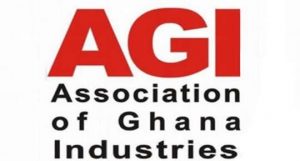The Ghana Investment Promotion Centre (GIPC) and the United Nations Development Programme (UNDP) have urged the private sector to explore the immense opportunities in Ghana’s Housing and Infrastructure sectors, using insights from the Sustainable Development Goal (SDG) Investor Map.
The call was made during the just ended third edition of the SDG Investor Map Breakfast Meeting.
The event rallied together relevant stakeholders to create awareness on the huge investment prospects of the housing and infrastructure sectors, as identified by the SDG Investor Map. It also set the stage to drive local and foreign investment into the housing industry, which is a priority sector under government’s Ghana CARES Obantaapa programme.
In recent times, Ghana’s property development market has gained momentum, in lieu of the urbanization rate of 3.51%, an increasing middle class, and the influx of non-resident Ghanaians and foreign homebuyers. In spite of an annual supply of 40,000 housing units, the Population and Housing Census conducted in 2021, revealed that the country’s housing deficit was still in excess of 1.7 million.
Addressing investors at the meeting, the Chief Executive Officer of GIPC, Yofi Grant stressed the urgency of promoting investments into these sectors, in order to address Ghana’s housing deficit, and bolster the country’s industrialization drive.
According to him, the real estate industry has a potential to provide investors satisfying returns, adding that “the Ministry for Works and Housing is working to bring on board new players in the mortgage industry.”
Mr. Grant also encouraged investors to utilize the SDG Investor Map, describing it as “an important source of information for investors, both local and foreign, who are seeking to explore Ghana’s Housing and Infrastructure space, aside other critical sectors”.
Underscoring the need for sector-driven investments, the Deputy Resident Representative of UNDP in Ghana, Sukhrob Khoshmukhamedov noted that, the country’s housing sector is brimmed with enough space for private sector participation.
In his view, an effective way to remedy the country’s housing deficit, is through partnership with the private sector.
“Ghana is looking for ways to close the housing gap. To achieve this, the private sector has to be roped in as a major player” he noted.
He reiterated UNDP’s commitment to supporting efforts to make Ghana a preferred investment destination.
Briefing stakeholders on some opportunities in the property sector that they could leverage, an Economic Analyst at UNDP, Sylvia Senu, noted that investors can explore the areas of “affordable housing construction, as well as road construction and maintenance”.
She proceeded to describe the potential in further depth, showing investors a sample business model that encompassed development needs, expected development outcomes, funding sources, and projected returns.
On his part, CEO of the National Home Ownership Fund, P. Dela Zumanu, outlined some initiatives being undertaken by his outfit to bridge the country’s housing deficit.
According to him “the Government has piloted a housing project that has worked and is partnering financial institutions to deliver affordable homes to those that need it”.
The event also availed a platform for contributions from other key players such as Ministry of Finance, Ministry of Works and Housing, KPMG and Saka Homes. It was capped with a B2B session to spur business interactions between mapped stakeholders.
A second iteration of the SDG Investor Map is currently identifying specific investment opportunities at the local levels, starting with six Metropolitan, Municipal, and District Assemblies (MMDAs). The pilot MMDAs are Kumasi Metropolitan Assembly, Ketu South Municipal Assembly, Sefwi Wiawso Municipal Assembly, Jomoro Municipal Assembly, Sagnarigu District Assembly and Kassena–Nankana West District Assembly.







